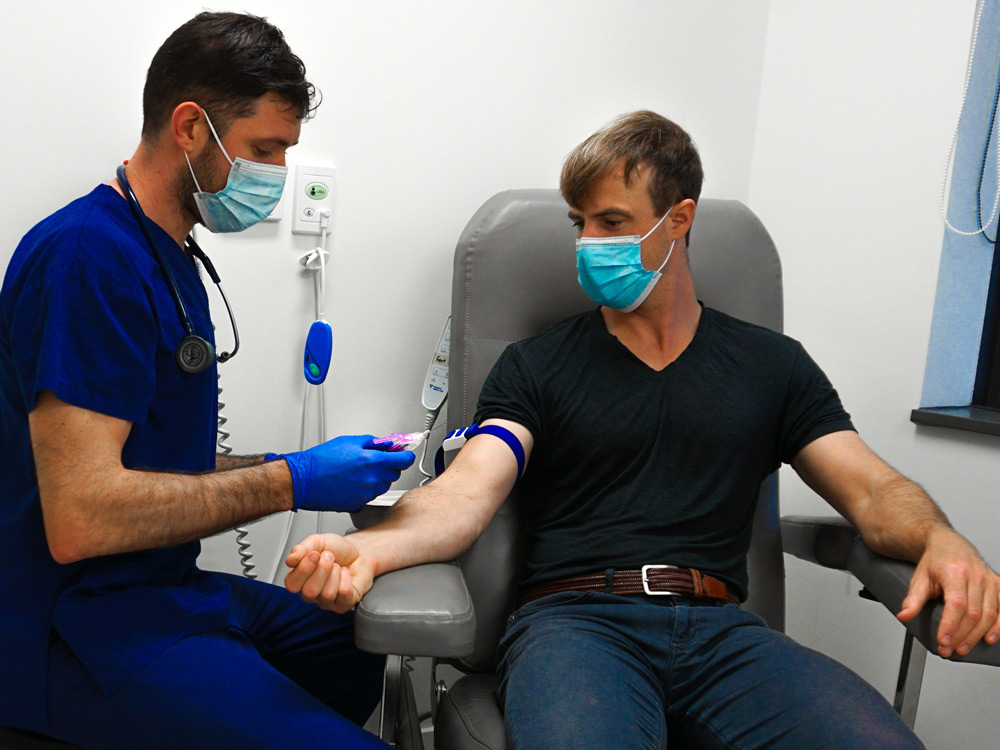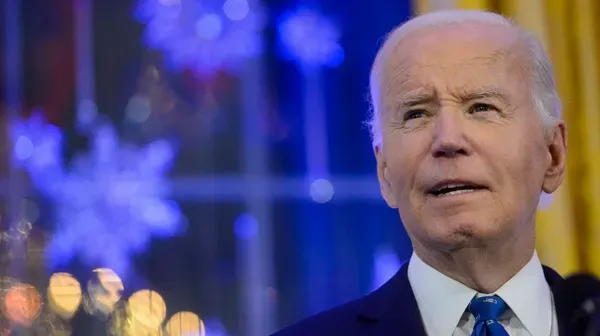
August 4, 2022
Many Lab Techs Refuse to Draw Blood of Monkeypox Patients, Reports CNN
READ TIME: 3 MIN.
On Tuesday it was reported there are 6,326 reported cases of monkeypox, an 81% increase from a week before, according to data from the US Centers for Disease Control and Prevention. But as the spread grows, an unexpected obstacle has occurred in terms testing needs.
"Many technicians at Labcorp and Quest Diagnostics, two of the largest commercial labs in the US, have been refusing to draw blood from patients who might have monkeypox," CNN reports.
The reason is unclear. "[A]fter company statements and follow-ups from CNN... whether the phlebotomists are refusing on their own to take blood or if it is the company policy that prevents them. The two testing giants say they're reviewing their safety policies and procedures for their employees."
CNN adds that whatever the reason, infectious disease experts treating monkeypox patients say that the refusals are based on stigma and slow efforts to identify and isolate patients. The Biden Administration is under criticism as the outbreak grows out of control and bureaucracy rules.
"This is absolutely inexcusable. It's a grave dereliction of duty," David Harvey, executive director of the National Coalition of STD Directors, told CNN. The group represents 1,600 sexual health clinics in the U.S., some of which have phlebotomists from commercial labs including Labcorp and Quest in their offices.
For Arthur Caplan, a bioethicist at New York University, such behavior recalls an earlier time. "This reminds me of the olden days when people didn't want to care for HIV patients."
CNN writes "Caplan, the bioethicist, questioned why Quest and Labcorp are working on guidelines now for their phlebotomists when the first monkeypox case appeared in the US more than two months ago."
"This should have been done already," he said.
When a technician does not draw blood, it "perpetuates more stigma and fear and anxiety" for a virus that's already stigmatized, adds Dr. Peter Chin-Hong, a member of the California Department of Public Health's Monkeypox Virus Scientific Advisory Committee who is caring for monkeypox patients.
Chin-Hong, an infectious disease specialist at UCSF Health, said men are avoiding getting tested for the virus for fear of being stigmatized.
"The fact that phlebotomists are afraid of taking specimens makes it even more unappealing for someone to ask for a monkeypox test," he tells CNN. "So this is going to make it even worse."
Since the first US case was identified in May, the�CDC�has given monkeypox infection control guidelines to healthcare providers. That page offers detailed instructions on how to treat these patients safely and notes that transmission in healthcare settings has been "rarely" reported.
Labcorp executive Dr. Brian Caveney told CNN, the company was reviewing its policies, and this was "likely to change."
Caveney, the company's president of diagnostics, said Labcorp was "trying to make sure that our work force is safe but also to ensure that we take care of our customers while we were figuring out the appropriate occupational safety regulations and policies."
"[Monkeypox] is new – nobody knew what it was – some nurses and doctors are scared of it. Some of our phlebotomists have been scared – appropriately – of it," he said.
But CNN writes "monkeypox�is not new: The US has seen cases before, including two last year and dozens in 2003. The amount of pox virus in blood is 'low,' according to the�CDC, which instructs health care workers to use�standard precautions�to prevent transmission when handling specimens from suspected or confirmed monkeypox patients".
And "the head of a phlebotomists' group said they shouldn't be scared, as long as they take standard precautions," CNN continues.
Diane Crawford, CEO of the National Phlebotomy Association, said she is "disappointed" that labs are allowing phlebotomists to refuse to draw blood from suspected or confirmed monkeypox patients.
"It is a problem. It's just like a doctor refusing to take care of a patient," she said.
A monkeypox diagnosis requires swabbing an infected area, but blood tests are recommended to check on other types of infections.
"Harvey said doctors at sexual health clinics have had to find workarounds when phlebotomists have refused to take blood from suspected monkeypox patients.
"We can't afford a delay in diagnostic testing because commercial labs aren't doing the right thing," he told CNN.
Harvey added that it feels like the refusals are "a modern-day example of discrimination" – a viewpoint shared by others.







